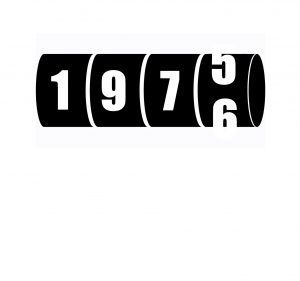 The Watchtower got Jehovah’s Witnesses excited about a new date for Armageddon and the beginning of Christ’s millennial kingdom—1975.
The Watchtower got Jehovah’s Witnesses excited about a new date for Armageddon and the beginning of Christ’s millennial kingdom—1975.
In 1966, a Watchtower book called Life Everlasting—in Freedom of the Sons of God presented a chronology of the world supposedly based on the Bible. On pages 29-30, it made the following claims:
According to this trustworthy Bible chronology six thousand years from man’s creation will end in 1975, and the seventh period of a thousand years of human history will begin in the fall of 1975 C. E. So six thousand years of man’s existence on earth will soon be up, yes, within this generation… So in not many years within our own generation we are reaching what Jehovah God could view as the seventh day of man’s existence. How appropriate it would be for Jehovah God to make this coming seventh period of a thousand years a sabbath period of rest and release, a great Jubilee sabbath for the proclaiming of liberty throughout the earth to all its inhabitants!… It would not be by mere chance or accident but would be according to the loving purpose of Jehovah God for the reign of Jesus Christ, the ‘Lord of the Sabbath,’ to run parallel with the seventh millennium of man’s existence.
In discussing this with Jehovah’s Witnesses, if they are old enough to remember this book, ask, “What did you think when you read this book at the time?” If not, ask, “What would you have thought if you had been old enough and read those statements?”
The reaction of most Witnesses at the time is described by former Witness elder Leonard Chretien: “This was it! The great event we had so longed for was just nine years away! The end was near. Jehovah would rain His judgment on the earth, and only we, His chosen organization, would survive to enjoy the 1000-year millennial paradise.” (Witnesses of Jehovah, Harvest House Publishers, 1988, p. 70).
Chretien adds (pp. 74-76): “’Stay alive until ‘75’ became the rallying cry of the Witnesses.. It affected all of our lives in many ways. All of our decisions—family, career, education, hobbies—were made in light of this date… One’s time had to be spent in door-to-door work or in preparation for meetings at the Kingdom Hall… Those (like us) who sold their homes and businesses in order to spend their time proclaiming the end were commended…”
Rather than urging caution, the Watchtower encouraged Jehovah’s Witnesses to orient their lives and careers around its 1975 speculation: “Reports are heard of brothers selling their homes and property and planning to finish out the rest of their days in this old system in the pioneer service. Certainly this is a fine way to spend the short time remaining before the wicked world’s end (Our Kingdom Ministry, 5/1974, p. 3).
In discussing this with Witnesses, you can say something like this: “This statement really troubles me because it seems to me that whoever published that was actually encouraging Jehovah’s Witnesses to sell their homes and property in order to devote themselves to witnessing because they thought the end was so close. I think about those Witnesses who trusted that the organization was speaking for God and actually sold their homes and property for a final effort. That happened more than 40 years ago. It seems to me that publishing those wrong expectations must have had a devastating effect on the lives of those sincere people.”
You can add, “When the end didn’t happen as expected, what happened to those Witnesses who gave up jobs, home, and property in order to make a final push at witnessing before the end came?”
What happened was that the Watchtower told disillusioned Jehovah’s Witnesses that “it was not the word of God that had failed or deceived him and brought disappointment, but that his own understanding was based on wrong premises” (The Watchtower, July 15, 1976, p. 441).
It wasn’t until four years later that the Watchtower acknowledged its own responsibility in creating these false expectations: “In saying “anyone,” The Watchtower included all disappointed ones of Jehovah’s Witnesses, hence including persons having to do with the publication of the information that contributed to the buildup of hopes centered on that date” (The Watchtower, March 15, 1980, p. 18, emphasis original).
You can conclude by saying something like this: “I want to make clear what is troubling me so much about all this. I don’t fault the Governing Body for making mistakes, because we all make mistakes. What troubles me is that they claim to be God’s channel of communication and that if I become a Jehovah’s Witness I will have to believe and obey everything they tell me even if it’s wrong. I don’t understand why you give admittedly fallible men that kind of control over your lives. Is that what Jehovah really wants us to do?”
Your turn:
Have you ever discussed the 1975 disappointment with Jehovah’s Witnesses? What was their response?
Share your thoughts in the comments.

Leave a Reply
6 Comments on "The Watchtower’s 1975 Failure"
Not sure if you are aware David that at the conventions in 2017 a video is shown that completely reverses the facts of 1975 to suggest that the Society were the ones telling the brothers to exercise caution – nobody knows the day or the hour!! see https://www.youtube.com/watch?v=kzslmW3RVqo
I have seen that video and I’m planning on devoting a future post to commenting on it. Thanks!
Brian, many years ago I had the chance to discuss this with Leonard Chretien. He told me he was nowhere near as upset that the WT had been wrong about 1975 as he was that they wouldn’t admit they were wrong or take responsibility. Rather, they blamed the problem on wrong expectations of JWs themselves.